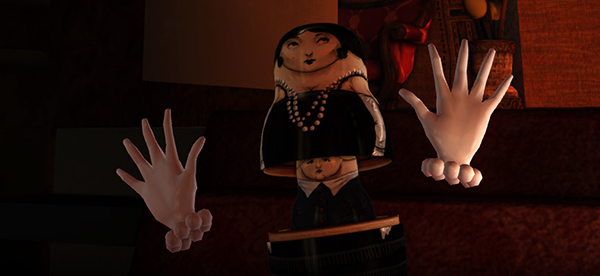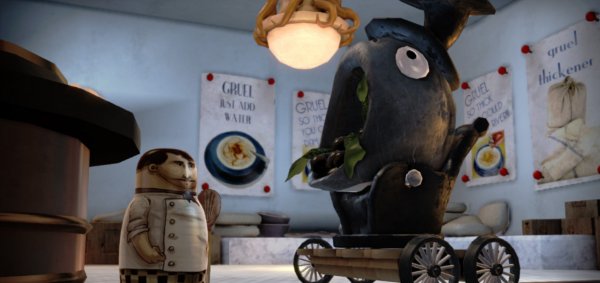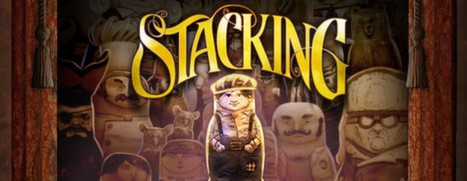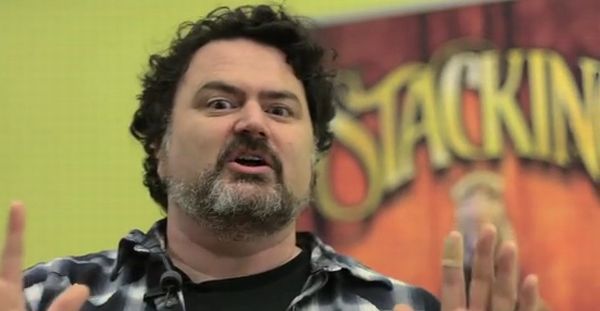 Tim Schafer wants more video games to make you laugh. The legendary designer behind Grim Fandango and Day of the Tentacle thinks comedy is necessary and not enough games are doing it right. Or even trying.
Tim Schafer wants more video games to make you laugh. The legendary designer behind Grim Fandango and Day of the Tentacle thinks comedy is necessary and not enough games are doing it right. Or even trying.
Speaking to some two hundred people at the NYU Game Center Thursday night, Schafer shared his thoughts on the current state of the gaming industry, discussing the nature of adventure games, his personal favorite titles, and that one important tool that many developers fail to use: humor.
If you go and ask a game development team why they're not making funny games, the Psychonauts creator said, half-joking, they'd say it's because nobody's made one that sold very much. "Comedy's really scary," he said. But it's also really necessary.
"If the game is not funny, you're missing something," Schafer said, telling the crowd how he used comedy as a tool to solve problems in The Secret of Monkey Island. While working as a programmer/writer for developer Lucasfilm, Schafer was tasked with writing the scene where protagonist Guybrush Threepwood and Governor Elaine Marley meet on the beach and fall in love. In five lines.
"You can't write a serious scene that has a pirate and a governor fall in love in five lines," Schafer said. "Humor is a tool to cover up the fact that this is not a solvable problem."
So he wrote the scene as if it were a joke, peppering the dialogue with terms like "honey pumpkin" and "plunder bunny." Without that humor, it wouldn't have worked. But by playing it up to absurd proportions, Schafer was able to throw logic under the rug and leave players laughing instead of scratching their heads.
Schafer, who has made headlines recently for his monumentally successful bout with crowdfunding site Kickstarter, didn't give any specifics on his new $3.4 million point-and-click adventure game, though he did assure the crowd that it will be in 2D (because it's cheaper). He promised that it would be true to the nature of adventure games, as nostalgic Kickstarter backers might demand. But it will also have new ideas, he added—because "people like to be surprised."
And—like all of Schafer-helmed studio Double Fine's projects—the upcoming crowdfunded adventure game will aim to be funny.
"If you don't have anything funny to say about a situation, the player will realize something's fake," Schafer said, bringing up the oft-cited pot-smashing of Zelda games, in which you can destroy and steal from peoples' homes with reckless abandon. When those townspeople don't react, the illusion is broken. Suddenly you realize that you're playing a video game.

Speaking at the NYU Game Center in Manhattan last night, Tim Schafer showed off a prototype for a cancelled Double Fine game that used emotions like anger and fear as puzzle-solving tools.
Maybe that's why Schafer has fallen in love with what he calls "wacky Japanese games"—titles like Katamari Damacy, LocoRoco, and Okami. Even when they're melodramatic, those types of games still never seem to take themselves too seriously. And they're atmospheric, Schafer points out. They're packed with emotions.
"Those things that the King of All Cosmos says are just so crazy," Schafer said, referring to the planet-sized Katamari character.
Last year, Schafer and his team developed a prototype for a narrative-heavy game that was quite literally driven by emotions. Instead of using verbs or commands to solve puzzles in the Kinect-controlled adventure game, players would use gestures to manipulate characters' feelings, forcing them into emotions like fear, anger, and love. The publisher backed out after the final prototype, so we'll probably never see that game, Schafer said.
One fan asked Schafer what he thought of the Mass Effect 3 ending controversy. Though the designer said he hasn't paid much attention for fear of spoilers—he still hasn't even beaten Mass Effect 2—he mused that he "always winds up defending the author" in situations like this.
"Games aren't made by an autonomous robot," Schafer said, "they're made by people. And those people have a point of view on the world and that's interesting. Connecting with those people is what makes art art for me."
Another crowd member asked if Schafer was worried about that sort of fan pressure now that he has 87,139 backers to worry about. Does the thought of living up to all of those expectations stress him out?
"It's not that stressful to get a whole bunch of money all of a sudden," Schafter said. "It's kind of relaxing."







 Speaking at the NYU Game Center in Manhattan last night, Tim Schafer showed off a prototype for a cancelled Double Fine game that used emotions like anger and fear as puzzle-solving tools.
Speaking at the NYU Game Center in Manhattan last night, Tim Schafer showed off a prototype for a cancelled Double Fine game that used emotions like anger and fear as puzzle-solving tools.



 Hello, you. I thought you’d like to know that
Hello, you. I thought you’d like to know that 
